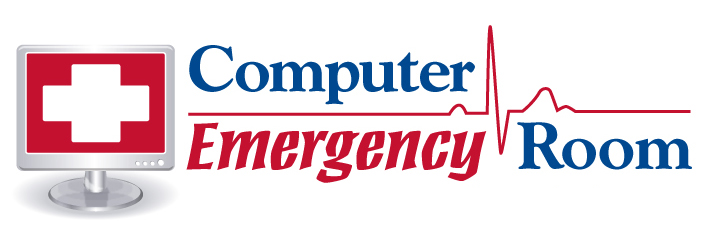Selecting a reliable website hosting provider is a pivotal decision that can significantly impact the success of your website. From ensuring optimal performance to safeguarding your data, your hosting provider plays a crucial role in how your site operates and how users experience it. To make an informed choice, you must ask the right questions. This article delves into the top ten questions you should ask before committing to a website hosting provider, empowering you to make a decision that aligns with your goals.
What Kind of Hosting Plans Does the Provider Offer?
Understanding the types of hosting plans offered by a website hosting provider is the first step in assessing whether they meet your needs. Most providers offer shared hosting, virtual private servers (VPS), dedicated hosting, and cloud hosting. Each plan caters to different requirements.
For instance, shared hosting is suitable for small websites with low traffic, but it may not perform well under high loads. VPS hosting offers more resources and control, making it ideal for growing businesses. Dedicated hosting provides exclusive server access, ensuring optimal performance for large-scale websites. Cloud hosting, on the other hand, excels in scalability and uptime. Knowing these options will help you decide which plan aligns with your budget and long-term goals.
What Level of Uptime Can They Guarantee?
Uptime is a critical factor in website hosting, as it determines how often your site is accessible to users. A reliable website hosting provider should guarantee at least 99.9% uptime. Anything less can lead to frequent downtimes, frustrating users and potentially harming your business reputation.
Ensure the hosting provider has a solid infrastructure, including redundant power supplies, robust servers, and a proven track record of minimizing outages. Ask about their Service Level Agreement (SLA) to understand the compensation or penalties they offer if uptime commitments are not met. This assurance helps you mitigate risks associated with downtime.
What Security Features Are Included?
Security is paramount when choosing a website hosting provider. In today’s digital landscape, cyber threats are ever-present, and your hosting provider should have measures in place to protect your site.
Ask about features like firewalls, malware scanning, DDoS protection, and SSL certificates. Inquire if the provider conducts regular security audits and offers advanced options like two-factor authentication for administrative access. Some hosting providers also include daily backups to ensure that you can quickly recover data in case of a breach or server failure. A secure hosting environment is crucial for safeguarding your website and its visitors.
How Scalable Are Their Hosting Plans?
As your website grows, your hosting needs will likely evolve. A flexible website hosting provider should offer scalable solutions that can accommodate increased traffic, additional resources, and evolving technology.
Inquire about the provider’s upgrade options and whether they can seamlessly transition you from shared hosting to VPS or cloud hosting without downtime. Also, ask if they provide pay-as-you-go models, allowing you to scale resources like bandwidth and storage based on demand. Scalability ensures your site remains functional and performs optimally, even during traffic surges.
What Is Their Customer Support Like?
Efficient and reliable customer support is a hallmark of a good website hosting provider. Technical issues can arise at any time, and you need a team that’s readily available to resolve them.
Ask if the provider offers 24/7 customer support and through what channels—live chat, email, or phone. Check their average response times and whether they provide support in your preferred language. It’s also wise to read reviews and testimonials from other customers to gauge the quality of their support services. Prompt and knowledgeable assistance can save you time and stress when dealing with hosting-related challenges.
What Are Their Pricing and Renewal Costs?
While affordability is essential, it’s equally important to understand the full cost structure of a website hosting provider. Some providers offer low introductory rates that increase significantly upon renewal.
Ask for clarity on what is included in the hosting package, such as domain registration, SSL certificates, or email hosting. Inquire about additional charges for features like backups, enhanced security, or resource upgrades. Transparent pricing helps you budget effectively and prevents unexpected costs.
Do They Offer a Money-Back Guarantee?
A money-back guarantee reflects the confidence a website hosting provider has in their services. This policy allows you to test their hosting without the risk of financial loss.
Ask about the duration of their refund policy, typically ranging from 15 to 45 days. Find out what aspects of the hosting package qualify for a refund and whether there are any hidden conditions. A clear money-back guarantee ensures peace of mind as you evaluate the provider’s performance.
Where Are Their Data Centers Located?
The location of a hosting provider’s data centers directly impacts your website’s loading speed and performance. Choosing a provider with data centers near your target audience reduces latency and improves user experience.
Ask if the provider has multiple data center locations and whether they allow you to choose one during setup. Some advanced providers also offer Content Delivery Networks (CDNs), which distribute your website’s content across global servers for faster access. Prioritizing data center location ensures optimal performance for your users.
What Backup and Recovery Options Do They Provide?
Data loss can be catastrophic for any website owner, making backups an essential feature. A dependable website hosting provider should offer automated backup services to protect your data.
Inquire how frequently backups are performed—daily, weekly, or on-demand—and whether they include full-site backups or only specific files. Also, ask about the ease and speed of recovery in case of an issue. Robust backup and recovery options protect you from data loss due to hardware failures, cyberattacks, or user errors.
What Add-Ons and Features Enhance Their Services?
Additional features can enhance the functionality of your hosting service, making it easier to manage and optimize your website. Some website hosting providers offer one-click installations for popular platforms like WordPress, advanced analytics tools, or free domain registration.
Ask about the availability of developer-friendly tools like staging environments, Git integration, or SSH access. Inquire if the provider offers performance boosters like caching tools or built-in CDN services. These add-ons can significantly improve your hosting experience and provide better value for your investment.
Final Thoughts
Choosing the right website hosting provider requires thorough research and careful consideration. By asking these ten crucial questions, you can identify a provider that aligns with your needs, budget, and long-term goals. From performance and security to scalability and support, every aspect plays a role in ensuring your website operates smoothly. With the right hosting partner, you can focus on growing your online presence with confidence.
If you’re facing hosting issues, website downtime, or technical difficulties, Computer Emergency Room is here to help. Our team specializes in resolving complex hosting and website problems quickly and efficiently. Whether you need expert guidance in choosing the perfect hosting plan or immediate technical support, we’ve got you covered.
Don’t let hosting issues hold you back. Contact the Computer Emergency Room today and let us keep your website running smoothly, securely, and efficiently!

